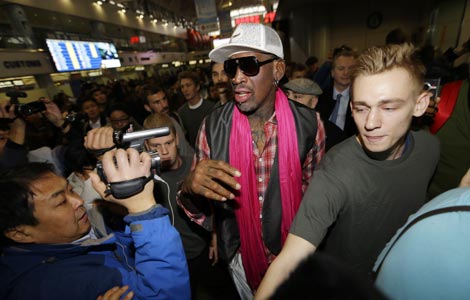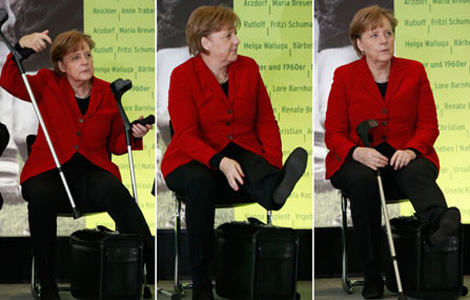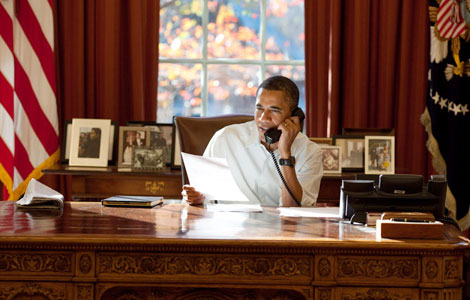Yellen gets final stamp of approval to head US Fed
Updated: 2014-01-07 08:08
(Agencies)
|
||||||||
OLD HAND
Yellen's rise to the top of the world's most influential central bank marks an important milestone for women, long under-represented in the field of economics and finance.
"She is breaking an incredibly important glass ceiling," said Terry O'Neill, president of the National Organization for Women, a liberal group that advocates for gender equality.
Even with the Fed's December decision to pare its bond buying and set out a road map for the wind-down, the Yellen Fed will have plenty of discretion. She could wait before making further reductions if the recovery stalls, or dial the program down faster should the job market strengthen unexpectedly.
The Fed sought to soothe investor angst over the reduction in asset purchases with a strengthened pledge to keep benchmark overnight interest rates low for a long time to come.
Maintaining the credibility of this pledge will be key to keeping rates from rising too far, too fast, a key challenge for Yellen as she faces the delicate task of setting the Fed back on the path to more normal monetary policy without rattling financial markets or disrupting the US economic recovery.
As she confronts that assignment, Yellen will draw on years of experience as a top economic policymaker, including her six years as chief of the San Francisco Fed and her more than three years as the central bank's No. 2 official.
She also served on the Fed's board in the 1990s when Alan Greenspan was chairman and as a top economic adviser to President Bill Clinton.
Yellen is a well-respected economics scholar and has taught at the Harvard University, the London School of Economics and the University of California, Berkeley.
Her research, some of it conducted with her Nobel-laureate husband George Akerlof, includes papers on topics as disparate as the rise in single motherhood, wage inflation and the negative effects of advertising.
As the Fed's vice chair, she spearheaded the central bank's adoption of a 2 percent inflation target and has championed the forward guidance the Fed has used to shape market expectations about the path of interest rates.
The central bank has said since December 2012 that it would hold rates near zero at least until unemployment falls to 6.5 percent, as long as inflation stays in check. Last month it said it expected to hold rates steady "well past" the time the jobless rate threshold is reached.
FILLING HOLES
Obama is expected to nominate former Bank of Israel head Stanley Fischer, an American-Israeli, to replace Yellen as vice chair.
But he will need to fill at least two other seats on the seven-member Fed board. One was left vacant when Elizabeth Duke departed in August and another is expected to be vacated soon when Sarah Bloom Raskin departs for the No. 2 job at the US Treasury.
Yellen's road to the helm of the central bank was a highly political one that ran through last summer.
Obama only settled on her after his former economic adviser Lawrence Summers withdrew from consideration in the face of fierce opposition from within the president's own Democratic Party. That opposition, centering on questions about Summers' temperament for the top Fed job and concern over his part in deregulating the banking industry, raised doubts about his chances of winning Senate confirmation.
Most Viewed
Editor's Picks

|

|

|

|

|

|
Today's Top News
FBI names arson suspect
Park says ties with China at new high
Economists remain optimistic about Chinese growth
Forbidden City to be closed every Monday
Director questions 3.6m yuan fine
Quality watchdog gives imported food priority
Arrest made in consulate fire in California
Beijing rejects Abe's call
US Weekly

|

|













